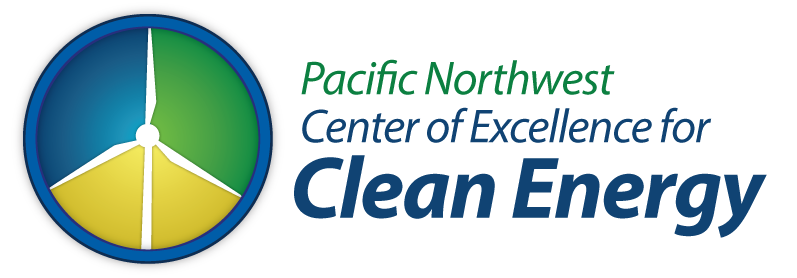Renewable Energy Technician
Renewable Energy Technicians can work in a variety of entry-level positions in renewable energy manufacturing, installation, site evaluation, and service industries. Specific subjects can include wind turbines, solar generation installations, hydro generators, batteries, or energy efficiency projects. Each discipline within this field will have varying job duties depending on the subject but will usually include equipment installation, maintenance, and repair.
Also known as: Wind Turbine Service Technician, Solar PV Installer, Renewable Energy Tech, Field Service Technician, Wind Turbine Operator
Pay Scale
$62,860 in 2021 in WA
$56,260 in 2021 in U.S.
Education
High School Diploma, Certificate, or Associate’s
Projected Opportunities
60 through 2030 in WA
1,900 through 2031 in U.S.
Career Path
A renewable energy technician can be an entry-level position, needing only a high school diploma and on-the-job training, though there are certificate and associate degree programs available that may be required depending on the employer. Renewable energy technicians can go on to follow two different paths. The first path leads to a solar PV installer, advancing to a PV system designer or PV electrician, and further to a project director or master electrician. The second path leads to a wind turbine technician, advancing to assistant site manager or additional education, and further to wind energy operations manager or wind energy engineer.

Training & Requirements
Training
Renewable Energy Technicians have a variety of skills and knowledge obtained through a certificate or degree program that typically relate to renewable energy sources, such as: wind, solar, and hydro power. They will also learn a variety of skills related to electrical, mechanical, and hydraulic systems.
Required Skills
- Willing to work at height, outdoors, and with safety equipment
- Ability to install equipment, machines, wiring, or programs to meet specifications
- Knowledge of machines and tools, including uses, repair, and maintenance
- Problem-solving to diagnose and repair equipment
Responsibilities
Responsibilities will depend on the specific job but may include:
- Troubleshoot and repair a variety of systems including: mechanical, electrical, and hydraulic systems
- Perform routine maintenance on wind turbine equipment, underground transmission systems, and wind field substations
- Assemble solar modules, panels, or support structures
